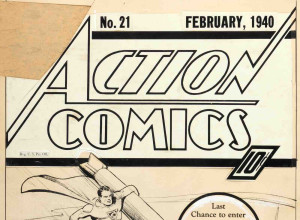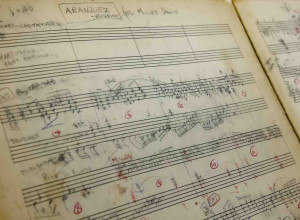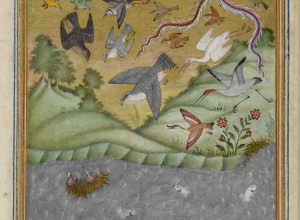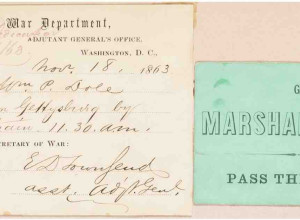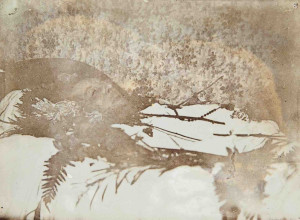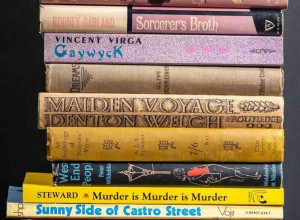Taking Feminist Comics Mainstream: The Groundbreaking Archive of Barbara Slate
 When Barbara Slate was breaking new ground as a woman writing and illustrating comic books she wasn't aware she should be saving the associated drafts and paperwork that went into creating her work. Then she met Center for Book Arts founder and distinguished book artist Richard Minsky, and he encouraged her to save everything. Now he is releasing a catalogue in preparation for the sale of the archive of her work, a project 30 years in the making that documents a crucial and often overlooked history in comic books -- the work of women artists in mainstream comics and the history of girl readership.
When Barbara Slate was breaking new ground as a woman writing and illustrating comic books she wasn't aware she should be saving the associated drafts and paperwork that went into creating her work. Then she met Center for Book Arts founder and distinguished book artist Richard Minsky, and he encouraged her to save everything. Now he is releasing a catalogue in preparation for the sale of the archive of her work, a project 30 years in the making that documents a crucial and often overlooked history in comic books -- the work of women artists in mainstream comics and the history of girl readership.
Minsky said of Slate's relevance, "From her creation of Ms. Liz, the liberated woman character who first appeared on greeting cards in 1976, to her recent political cartoons on social media, Barbara Slate has been in the forefront of communicating strong role models to girls and women of all ages."
Now, because of careful stewardship, Slate's archive takes up 35 cubic feet of space, includes copies of her published comic books and work including scripts, layouts, editorial comments, drafts, revisions, original art, press clippings, ephemera, and digital materials. It also includes many unpublished works, screenplays, and commissioned projects, and even a pair of roller skates.
Before Slate's groundbreaking Angel Love, a comic that ran in DC Comics from 1986-87, comics marketed for teen girls and women were focused on traditional values and aspirational lives like Betty and Veronica, which Slate also wrote and drew, and superheroes like Batgirl and Wonder Woman.
But Slate's Angel Love was an unusual comic; it was, she explained, "full of drugs, sex, and rock and roll. When it came on the scene there was nothing like it that dealt with things going on for real in girls lives." Unlike Betty and Veronica, Angel Love didn't avoid sex, tragedy, abuse, difficult family relationships, divorce, or other challenges facing young women growing up. The series was the first by a mainstream comics publisher to tackle these topics, and, as a result, Slate's work faced both condemnation and critical acclaim, and was labeled for mature readers without the Comics Code Authority Seal. One of the results of Angel Love was honest fan mail from teens telling her that it had made a difference in their lives, that she represented their lives, and that they'd found an honest storyteller in her, and therefore a friend -- this fan mail is a part of the archive.
Even a quick scroll through Minsky's preview of Slate's archive demonstrates what a significant piece of comics history Slate's work represents, particularly since Slate worked both in alternative and mainstream comics. She drew traditional characters as well as girls and women who represented women that hadn't been seen in comic books before -- a refreshing addition when so many women featured in comic books are a kind of dreamgirl stereotype and the representation of a male comic book artist's fantasy.
A limited edition of the Barbara Slate catalogue is available for pre-order. And those lucky enough to live in New York and want to learn how to make graphic novels can take her course at Cooper Union this June.
Image courtesy of Barbara Slate





